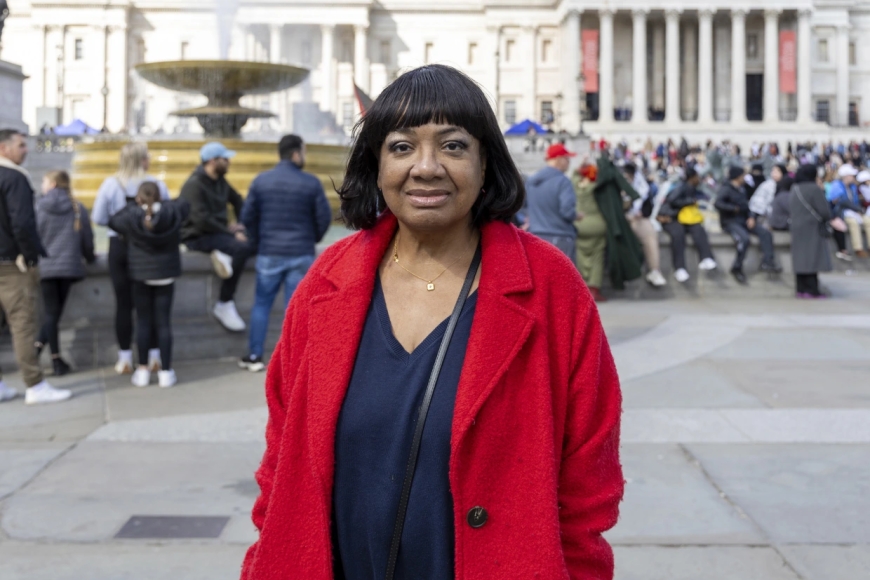Diane Abbott, UK’s First Black Female MP, Faces Potential Ban from Labour Candidacy

Diane Abbott, the UK's first Black female lawmaker, has expressed deep dismay over the possibility of being barred from running as a Labour Party candidate in the upcoming July 4 election. This development follows controversial remarks she made over a year ago regarding Jews and racism.
Abbott, 70, a prominent Labour figure since her historic election in 1987, has been a vocal advocate on issues of racism, poverty, and international affairs, representing her northeast London constituency. Her longstanding commitment to these causes has made her a trailblazer for Black women in politics.
However, Abbott's political career took a significant hit last year when she penned a letter to the Observer newspaper, drawing comparisons between the prejudice faced by Jewish people and racism. “They undoubtedly experience prejudice. This is similar to racism and the two words are often used as if they are interchangeable,” Abbott wrote. “It is true that many types of white people with points of difference, such as redheads, can experience this prejudice. But they are not all their lives subject to racism.” Following these comments, Abbott apologized "unreservedly" but was subsequently suspended from the party.
Abbott's close association with former Labour leader Jeremy Corbyn, under whose leadership the party faced serious accusations of antisemitism by the equalities watchdog, has further complicated her standing within the party. Corbyn himself was barred from running as a Labour candidate after downplaying the extent of antisemitism within the party, prompting him to announce his independent candidacy last week.
Current Labour leader Keir Starmer, anticipated to be the next Prime Minister according to polls, has made concerted efforts to address allegations of antisemitism and expunge left-wing elements from the party.
“I am very dismayed that numerous reports suggest I have been barred as a candidate,” Abbott stated on X (formerly Twitter), underscoring her pioneering role in British politics.
The decision to potentially bar Abbott from candidacy, first reported by The Times, has sparked significant backlash. Jacqueline McKenzie, a human rights lawyer and Abbott's friend, criticized the Labour Party's handling of the situation on BBC Radio, arguing that Abbott deserved “greater respect and greater dignity than to have these leaks.” She pointed out discrepancies in the party’s treatment of other MPs, suggesting differential treatment towards Abbott.
Abbott has endured extensive online racist and sexist abuse throughout her parliamentary career. This past March, a Conservative Party donor issued an apology for offensive comments made in 2019, which included the appalling statement that Abbott “should be shot.”
Supporters and some opposition lawmakers view the potential ban as unjust, raising concerns about its implications for the wider African Caribbean community and the precedent it sets within the Labour Party.













































